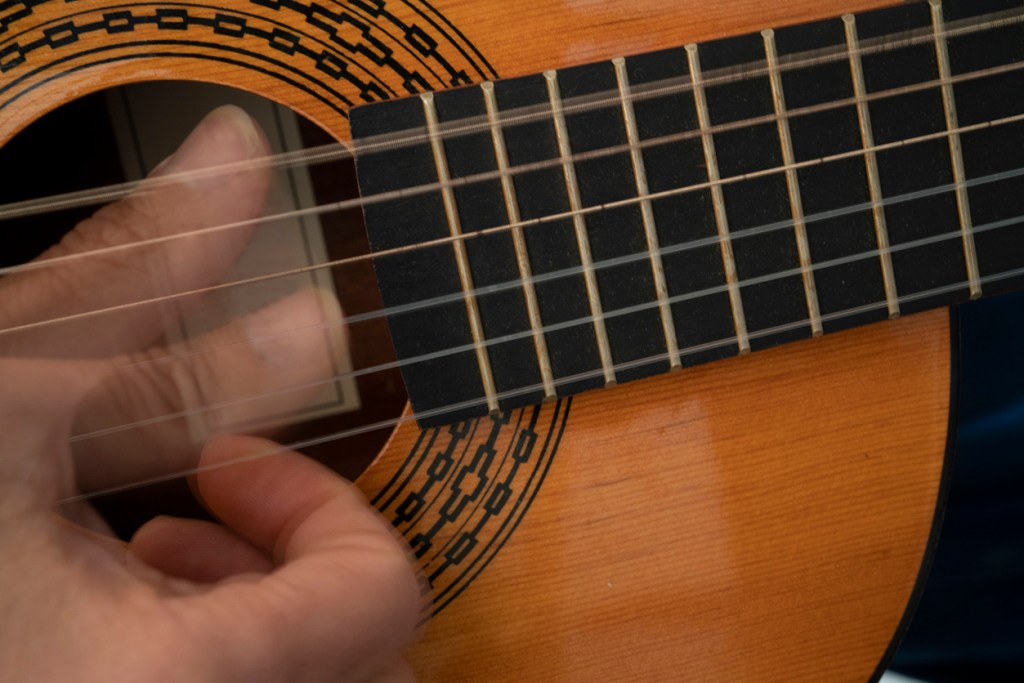When you hear the word flamenco you probably think of a lady dancing in a polka-dot dress, stomping her feet, accompanied by guitars and singing. And in the fair capital of Andalucía, Seville, you would have no problem finding such a sight. All across the old town, around the cathedral and in the lee of its 12-century minaret turned cathedral bell-tower, glamorous flamenco dancers are busy at it, stirring up passion on the cobbled streets and in the city-centre tourist shows. There’s no denying such flamenco demonstrations will raise your pulse and the tourists, not surprisingly, love them.

But if you think that’s good, you need to head south of Seville toward the sherry-growing region around Jerez de la Frontera, and to the likes of San Fernando, just outside the coastal city of Cadiz, where El Camarón – The Shrimp – emerged to become one of flamenco greatest and most tragic sons.
Born in 1951 into a gypsy family, José Monge Cruz was given his unusual nickname on account of the fair hair he had as a child. Growing up amid a family of singers, his extraordinary talent drew crowds even when he was a boy. Also known among gypsies as El Príncipe, The Prince, he was revered for his heartrending voice and songs, playing solo as well as making albums with the renowned Spanish guitarist Paco de Lucia. Camarón died of lung cancer in 1992 aged just 41.

Soldiers in combat have better survival rates than many flamenco singers judging by the history. If it’s not the chain smoking, it’s the drug use or interfamilial squabbles ending in stabbings. But the tragedy coexists with – perhaps is a fundamental part of – producing sublime artistry that offers further evidence that no matter how tawdry man becomes or how low he sinks, he is never entirely removed from the angels.
This sort of raw flamenco is Spain’s answer to Greek tragedy, distilled down to one man and his guitar (it’s often a man with a face covered in as many cracks and ravines as the Grand Canyon, though I have heard some excellent female guitar players) and the most haunting wailing of vocals you will likely ever hear.
Having left India around the 15th century and made their way across the Middle East and Europe before crossing the Pyrenees into Spain, persecuted along the way and wherever they tried to settle, gypsies had a lot of sorrow and frustration to sing about. The result was flamenco. ‘They were noted musicians whose services could be bought for weddings and celebrations,’ Giles Tremlett writes in Ghosts of Spain. ‘Spanish culture was itself a melting pot at the time, with Arab and Jewish music adding to a stock of romances, traditional poetry, occasionally set to music.’
This sort of flamenco is the antithesis of the British stiff upper lip. It is the Spanish lip in freefall, pouring everything out, rendering utterly naked the heartache, the failures, the losses and wretchedness that compose life
Steeped in that exotic churning background, flamenco ‘emerged from this stew over the centuries’, Tremlett says, ‘appearing in a recognisable form in the early 19th century’. Like the blues of the American South, it’s a musical form driven by suffering and sentiment, he notes. Camarón had a Star of David and a crescent moon tattooed together above his right thumb, which his brother explained symbolised the shared history of persecution of Jews, Muslims and gypsies in Christian lands.
I came across this unadulterated flamenco outside a tiny bar in Las Cabezas de San Juan under a full moon recently. It was a Saturday night, and I’d been driven away from the main plaza by a dodgy rock band playing for the locals. Talk about leaving behind the crass modern world and entering a parallel dimension.
A young man sitting on a stool in the street strummed his guitar while singing his lament. An older man in workman coveralls with hi-vis stripes who had been watching suddenly stepped forward, his arms raised with wrists cocked before gingerly pacing out a few steps of a dance. Then another man stepped forward to join in with him, as they heel drummed and hopped around each other. Everyone else on the street clapped along, ‘beating out a complex, staccato, machine-gun rhythm’, as Tremlett perfectly describes it. Occasionally someone weaved their way into the dance, or they remained where they stood with their hands in the air, clicking their fingers flamenco-style. There was no cover charge. It was entirely organic and spontaneous. I felt voyeuristic, sitting there as a foreigner, so personal and heartfelt a rendering was it of emotion and angst.
It is fascinating to behold, especially as a Brit. This sort of flamenco is the antithesis of the British stiff upper lip. It is the Spanish lip in freefall, pouring everything out, giving the lie to all the sanitised fakery of society, rendering utterly naked the heartache, the failures, the losses and wretchedness that compose life.
Flamenco, Tremlett explains, is both ‘pain and quejío, a flamenco word to describe the outpouring of that same pain’. It’s also particularly un-woke, with no time for political correctness, especially the flamenco that emerged in the 1970s with bands that Tremlett describes as the Status Quos of the flamenco world. ‘The women in these songs are mothers, virgins, whores, junkies, whipping posts and, especially, traitors to their men,’ Tremlett says. ‘The men, in turn, are poor violent, bitter, drugged and, often, in jail.’

After a day’s Camino hiking – I was following a 117km route known as the Vía Augusta from Cadiz to Seville – I came to the small town of El Cuervo de Sevilla, about 20km north of Jerez de la Frontera. As I sipped my sherry at a bar counter opening on to the street, I noticed that inside every wall was covered with posters and pictures of the same man, usually sporting an impressive bouffant and mullet. It was El Camarón himself, an ‘intense introvert’, Tremlett says, ‘a man of profound, hermetic silences’ who ‘possessed the best, most tragic, flamenco voice of the past quarter of a century’.
After reaching Seville, inspired by my exposure to real flamenquillo, I attended for the first time that other quintessential Spanish experience: a bull fight at La Maestranza, the oldest bullring in Spain. Mid-way through, I left my seat to search out the heads. In the passage leading away from the sol cheap seats of the tendido alto stood a dashing young man watching the fight. We got talking and he turned out to be a French matador. Standing behind him in attendance was an even younger woman of astonishing beauty. A ponytail of the darkest, most perfect hair cascaded down the entire length of her back.
It was enough for me to need to sing my own flamenco about good-looking French matadors always getting the beautiful girls. But, being long out of tune, after finishing in the baños I instead went to buy a beer to nurse my sorrows in the only way a Brit can.







Comments